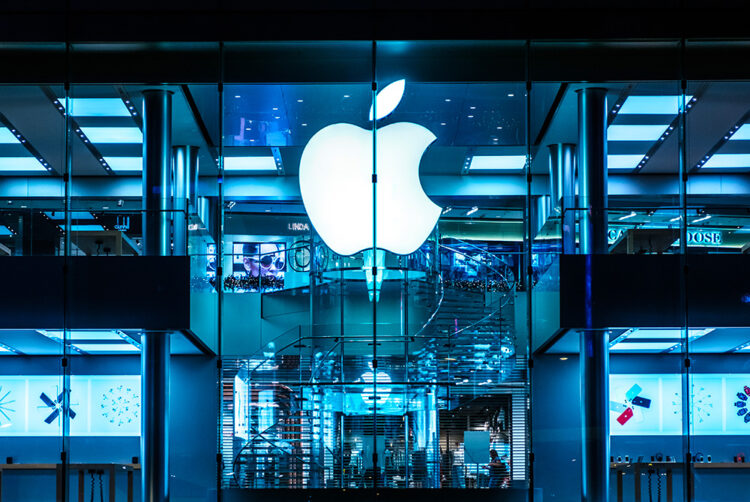The European Commission (EC) intends to impose its first-ever fine on Apple for allegedly breaking EU law over its music streaming service.
The fine is reportedly in the region of €500m. It follows a long-running investigation into whether Apple prioritised its music streaming service over competitors by blocking iPhone users from being told about cheaper subscription alternatives outside its App Store. This would be against EU laws that enforce competition in the single market.
Apple was previously fined €372m by France’s antitrust watchdog for alleged anticompetitive behaviour in 2022. This was revised down from an initial fine of €1.1bn after a charge on fixed pricing was removed and the time scope for the allegations was narrowed.
Tech giants Meta, Amazon and Google have also been facing fines and lawsuits in the US and Europe — albeit not always in the area of competition.
Meta was recently hit with a €1.3bn fine by the EU for breaching privacy rules — the largest in GDPR history at the time. Amazon was issued with a €746m fine in 2021 from the Luxembourg National Commission for Data Protection for failing to comply with data protection laws. Google has accumulated €8bn in fines in Europe over the last few years and which are being currently contested in court.
Apple’s fine is due to be finalised early next month and the company can appeal the decision in EU courts.
The Media Leader has contacted Apple and the EC for comment.
DMA developments
In the EU, companies that are defined as “gatekeepers”, including Apple, Amazon and Google, will need to abide by the incoming Digital Markets Act (DMA), including rules requiring information to be shared between companies to enable fairer competition.
While Apple’s potential fine has not been imposed through the DMA, more fines are expected to follow under the new legislation, setting a precedent for other watchdogs and regulators.
The EU’s investigation and fine in this case follows a formal complaint from music streaming company Spotify to the EC in 2019. The complaint also led to Spotify’s “Time to Play Fair” campaign, which took aim at Apple for not allowing in-app promotional offers and taking a 27% cut from in-app transactions.
The EC narrowed its case in 2023 to exclude in-app payments in the investigation. Apple responded at the time: “We’re pleased that the commission has narrowed its case and is no longer challenging Apple’s right to collect a commission for digital goods and require the use of the in-app payment systems users trust.
“The App Store has helped Spotify become the top music streaming service across Europe and we hope the EC will end its pursuit of a complaint that has no merit.”
Apple made changes to its iOS mobile software, App Store and Safari browser last month in order to be “more compliant” with the DMA.
A statement said: “We’re happy to support the success of all developers — including Spotify, which has the most successful music streaming app in the world. The changes we’re sharing for apps in the EU give developers choice, with new options to distribute iOS apps and process payments.
“Every developer can choose to stay on the same terms in place today. And under the new terms, more than 99% of developers would pay the same or less to Apple.”
Spotify takes aim at Apple with OOH campaign
Analysis: What it means for the UK
With the UK no longer in the EU, what impact do these rulings have?
The UK government is in the process of implementing a similar act to the DMA called Digital Markets, Competition and Consumers (DMCC) Bill to stop “anti-competitive” practices by gatekeeper companies. The bill is near the final stages in its third reading in the House of Lords.
Within that, it has a provision for the Digital Markets Unit (DMU) to be created within the Competition & Markets Authority (CMA). It would have powers to instruct tech companies to “provide more choice and transparency to their customers” and, if this is not followed, fine them up to 10% of global turnover.
The bill description says: “The government’s new digital regime will give the DMU powers to ensure that businesses and consumers are not unfairly disadvantaged by the biggest players, allowing them access to dynamic and thriving digital markets that will ultimately support our economy to grow.
“If a firm is deemed to have strategic market status in key digital services, the DMU will be able to step in to set tailored rules on how they behave and operate.
“The DMU will also be able to tackle the root causes of competition issues in digital markets by carrying out targeted interventions, opening up new paths for startups or smaller firms that have previously struggled to grow and compete in these markets.”
Spotify’s head of global government affairs and public policy, April Boyd, said this would create “a level playing field” and ensure the UK remains “a leading marketing for digital innovation”.
Adwanted UK are the audio experts operating at the centre of audio trading, distribution and analytic processing. Contact us for
more information on J-ET, Audiotrack or our RAJAR data engine. To access our audio industry directory, visit
audioscape.info and to find your new job in audio visit
The Media Leader Jobs, a dedicated marketplace for media, advertising and adtech roles.




